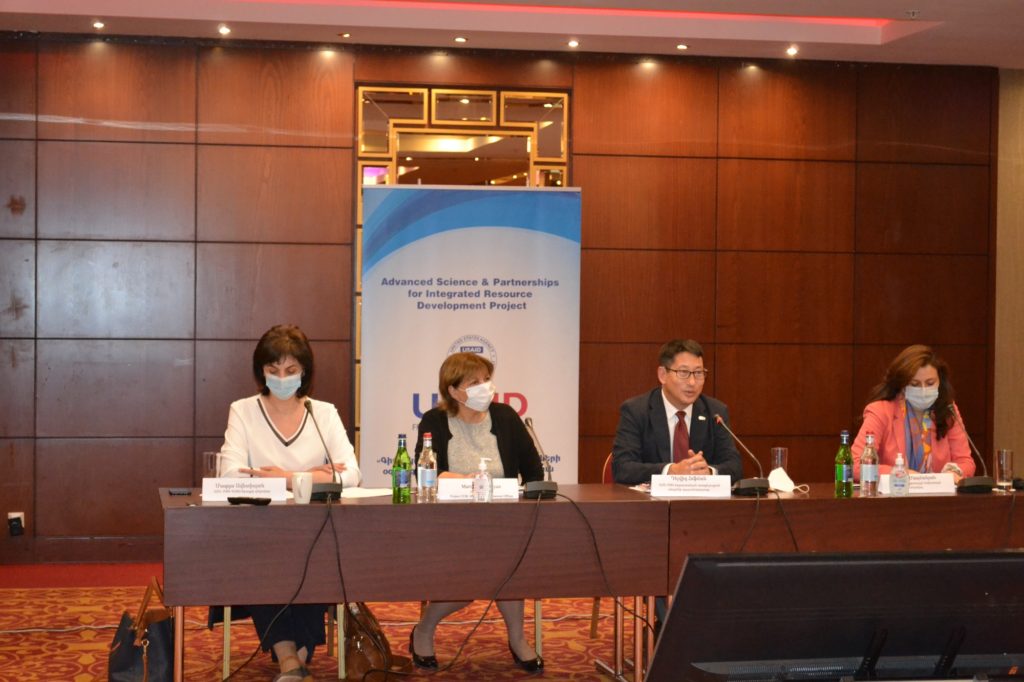
The Armenian authorities are improving the groundwater management in the Ararat Valley in cooperation with the USAID Advanced Science and Partnerships for Integrated Resource Development (ASPIRED) Project which is concluding its six-year run. The Project assisted the Government of Armenia in developing technical solutions and policies aiming to curb the groundwater abstraction in the Ararat Valley to sustainable levels.
During the close-out conference, the project brought together the government stakeholders, donor organizations, partners and communities of Armavir and Ararat regions to discuss the accomplishments and lessons learned by the Project during the life of its implementation.

Over 30 communities in the Ararat Valley face drinking and irrigation water problems due to the resource depletion. The ASPIRED project implemented 17 pilot projects in the region, demonstrating application of water and energy saving solutions to communities and fish-farmers. Eleven communities of the Ararat and Armavir regions were involved in the drinking and irrigation water projects. Due to these projects, over 13 mln. cubic meters of groundwater and 1380 megawatt-hours of energy will be saved annually, which is equivalent to nearly USD 125,000.
“I am proud to know that USAID and the Government of Armenia have already been working to improve management of country’s water resources for many years. Because of this remarkable, collaborative effort, over 32,000 people in the Ararat Valley that were severely impacted by water-loss now have access to safe, reliable and clean water. This impacts Armenia more broadly as well. As the breadbasket of Armenia, these communities can now sustainably support agriculture and businesses which produce and provide food and income to thousands,” – John Allelo, USAID/Armenia Mission Director.

In six years, the ASPIRED project recorded an impressive list of achievements: modernizing the State Water Cadaster Information System; designing the three-dimensional structure of the groundwater basin and the Ararat Valley Atlas; and developing special decision-support tools on water allocations.
The ASPIRED Project provided the Government recent data on groundwater reserves and estimates of the sustainable volume of the groundwater abstraction in the Valley which does not violate the recharge potential of the aquifer. The data presented by the ASPIRED project can serve as the basis for the Government to execute balanced water sector policies and regulations, which comply with the long-term resource conservation objectives and the region’s water needs. The ASPIRED Project assisted the Ministry of Environment to improve legislation in the water sector. In collaboration with the Ministry, the Project elaborated the requirements for protection of water resources in recreational zones which were adopted and came into effect in 2019. In September 2021, the Project will present to the Government the method of assessment of self-purification capacity of Armenian rivers.
































